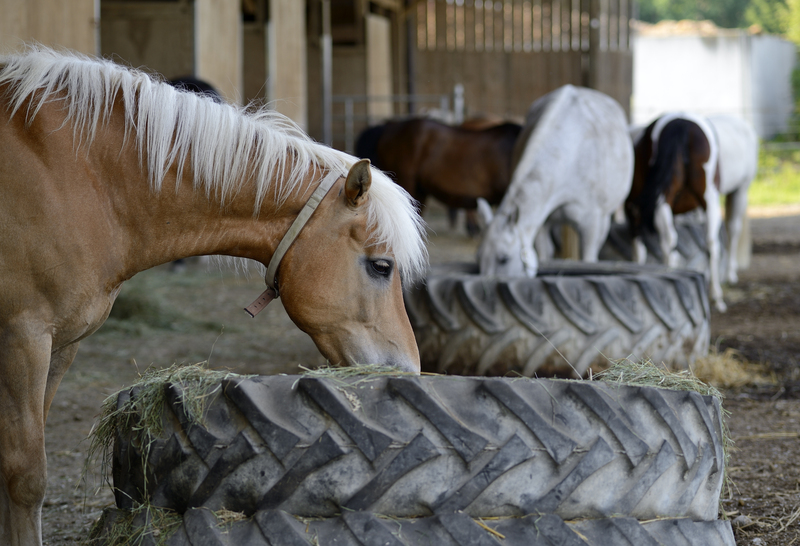Steps to Ethically Recycle Your Old Pots and Pans
Are you looking for responsible ways to dispose of your outdated kitchen cookware? Old pots and pans, whether scratched, warped, or simply obsolete, should never end up in landfills. With rising environmental concerns, responsibly recycling your used cookware is a simple but powerful act towards sustainability. In this comprehensive guide, discover step-by-step instructions to ethically recycle old pots and pans, give them a second life, and reduce your environmental footprint.
Why It's Important to Recycle Old Cookware
Pots and pans are often made from metals like aluminum, stainless steel, copper, or cast iron. These non-renewable materials take hundreds of years to decompose if discarded irresponsibly. Proper recycling ensures that valuable metals are reclaimed, energy and resources are conserved, and our planet is protected for future generations.
- Reduces landfill waste - Metal cookware doesn't break down naturally and adds to overflowing landfills.
- Conserves resources - Recycling metals uses less energy than mining and processing new raw materials.
- Prevents pollution - Avoids toxic substances like Teflon and coatings from leaching into soil and water.

Understanding the Types of Cookware You Can Recycle
Before diving into the recycling process, identify your cookware material. This is crucial, as recycling protocols differ for each kind. Some pieces may also contain plastic or non-stick coatings, which affect how they should be recycled.
Metal Cookware
- Aluminum pans: Lightweight, often dull in color. Highly recyclable.
- Stainless steel pots: Heavier, shiny. Widely accepted at most metal recycling centers.
- Copper cookware: Reddish metal, often with a layer of tin or stainless steel inside.
- Cast iron pans: Very heavy, black, and thick.
Non-Metallic and Coated Cookware
- Non-stick/Teflon pans: Feature a plastic-like coating.
- Glass lids: Tempered glass is not recyclable in standard glass streams.
- Plastic handles or lids: Must be separated from metal parts before recycling.
Step-by-Step Guide to Ethically Recycle Your Old Pots and Pans
Follow this systematic approach for the most ethical and environmentally-friendly recycling of your cookware:
Step 1: Assess the Condition of Your Cookware
Start by examining your old pots and pans to decide if they truly need to be recycled. If they're still usable, consider reusing, upcycling, or donating them before recycling. As a rule of thumb:
- Light scratches or discoloration: Could still be suitable for donation.
- Warped, deeply scratched, or peeling non-stick coating: Not recommended for use; ideal for recycling.
Step 2: Find Local Donation or Upcycling Options
Before recycling, check if your cookware can serve a second life, reducing the need for raw materials and supporting those in need.
- Donate usable cookware to thrift stores, community kitchens, homeless shelters, or via online platforms such as Freecycle, Craigslist, or Facebook Marketplace.
- Repurpose or upcycle creatively--turn saucepans into planters, storage containers, or quirky decor.
Donating not only diverts waste but promotes a circular economy and helps others in your community.
Step 3: Separate Materials
To ensure efficient recycling, break down your cookware into recyclable components where possible:
- Remove plastic, rubber, or wooden handles - Unscrew or cut off non-metal parts. These usually cannot be recycled with metals.
- Separate lids from main pans - If made from glass or other materials, dispose of them via appropriate recycling streams.
- Scrape off loose coatings when safe - Some recycling centers require Teflon or enamel to be removed, although most will process them as-is.
Step 4: Clean Your Old Pots and Pans
Clean, residue-free cookware is easier to process for recyclers. Run pans through the dishwasher or scrub off food debris, ensuring they're dry before dropping them off.
Step 5: Locate the Right Recycling Facility
Check which facilities in your area accept metal pots and pans. Not all curbside recycling programs process cookware, since many require commercial-grade melting or specific sorting.
Use resources like Earth911, local government websites, or a quick search for scrap metal recyclers near you. Look for:
- Scrap metal yards
- Specialty recycling centers
- Teflon or non-stick pan recycling programs - Some brands offer mail-back take-back policies.
Tip: Call ahead to confirm acceptance of various types of cookware and coatings.
Step 6: Drop Off Your Cookware Responsibly
Bring your separated, clean pieces to the recycling center. Often, you'll be asked to sort them by metal type--bring stainless steel, aluminum, and copper separately if possible.
In some cases, you may receive a small payment for scrap metal, providing added incentive to recycle responsibly!
Special Considerations for Non-Stick (Teflon) Cookware
Non-stick coatings (like Teflon) present unique challenges in recycling due to the plastic and chemical content. Here's what to do:
- Check with manufacturers--brands like Calphalon and GreenPan offer recycling or return programs for their products.
- If not, confirm with your local metal recycler whether they accept non-stick pans. Most will, as the coating burns off in the recycling process, but some have restrictions.
- Never put non-stick cookware in regular curbside recycling bins unless your municipality specifically allows it.
Can You Recycle Ceramic-Coated or Enamel Pots and Pans?
Similar to non-stick cookware, ceramic and enamel coatings complicate recycling. Some scrap yards accept them as is, while others request the coating be removed. Always call ahead to verify your options.
Other Ethical Disposal Alternatives
Ethical recycling doesn't end with the process above. Consider these sustainable alternatives for old cookware disposal:
1. Art and Craft Projects
Old pots and pans make excellent canvases for creative expression. Turn them into wall clocks, garden ornaments, or quirky reusable storage solutions for your home or garden.
2. Donate to Schools or Theaters
Art departments and theaters frequently need props, and an old pan can find a new role on stage or in the classroom.
3. Community Tool Libraries or Workshops
Some tool libraries or maker spaces accept old cookware for workshops, teaching purposes, or metalworking practice.
4. Sell for Scrap Value
If your old pots and pans are primarily metal, many scrap yards pay by weight, especially for aluminum, copper, or stainless steel. This keeps metals in circulation and out of the landfill.
Frequently Asked Questions on Recycling Old Cookware
Can I put pots and pans in my curbside recycling?
Most curbside recycling programs do not accept pots and pans due to their size, weight, and potential coatings. Double-check your municipality's guidelines or opt for a local scrap metal recycler.
Are scratched non-stick pans safe to continue using?
No. Once non-stick coatings are scratched or peeling, the cookware is both unsafe for continued food use and prime for recycling or upcycling.
Do I need to remove handles before recycling?
It's best to do so. Plastic, wooden, or rubber handles contaminate metal recycling streams. If removal isn't possible, inform your recycler.
What about glass lids?
Tempered glass used in cookware lids isn't typically accepted in regular glass recycling. Check if your local center has a program for tempered glass or dispose of it as instructed locally.
Can cookware be thrown out if it's too damaged?
Always try ethical recycling first--even heavily worn cookware still has recyclable metal content. Landfilling should be absolute last resort.
Best Practices for Responsible Cookware Recycling
- Always clean cookware before recycling.
- Contact your recycling center for specific instructions.
- Prioritize reuse and donation before recycling.
- Strive to separate materials for more efficient recycling.
- Educate friends and family--spread the word about responsible cookware disposal!

Conclusion: Giving Old Pots and Pans a New Life
Learning how to responsibly recycle pots and pans is a simple step with a meaningful impact. By identifying recyclable metals, separating components, seeking donation or upcycling options, and using the right facilities, you minimize waste and contribute actively to sustainability. Give your cookware a second life--donate, repurpose, or recycle it ethically--making your kitchen cleaner, greener, and more planet-friendly.
Remember: Every pot and pan responsibly recycled is a win for the environment. Start today and inspire others to do the same!
